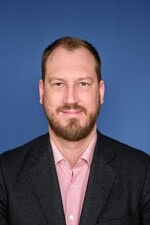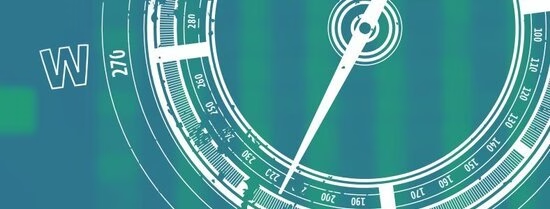Introduction
Key terms: mandatory topic, research ethics, dealing with dilemma’s, academic integrity declaration, introductory course, relevant for students in the beginning of their PhD trajectory.
ECTS: 1.5
Number of sessions: 1
Hours per session: online: 4 offline: 7
Course fee: n/a
Professionalism and integrity in research are mandatory topics for all our PhD candidates. Read more about the mandatory topics on the main page of our course guide.
Academic researchers are frequently faced with dilemmas. Can I exclude particular observations from my research? Can I use exactly the same data set for multiple papers? Should I agree on a colleague being a co-author on a paper to which he/she has not made a significant contribution?
To help researchers address these issues, this course will seek to raise awareness for, and where necessary help increase, scientific professionalism and integrity.
The first part of the workshop comprises highly interactive lectures about academic principles, values and rules within the social sciences and the humanities. The afternoon section is reserved for the EUR Dilemma Game, which includes in-depth discussions in smaller groups on particular dilemmas. Through the game researchers are invited to exchange opinions and experiences, and defend (and possibly reconsider) alternative courses of action regarding realistic dilemmas on professionalism and integrity in research.
At the end of the course, participants are invited to sign the academic integrity declaration. According to the EUR doctoral regulations, all academic employees and PhD candidates of Erasmus need to sign this integrity code through which they vow to comply with the principles described in the Netherlands Code of Conduct for Research Integrity.
Entry level and relevance
This is an introductory course. No prior knowledge or experience is required.
It is particularly relevant for students from the social sciences and humanities who are in the first phase (particularly first year) of their PhD trajectory.
Relations with other courses
This course has no significant overlap or relations with other EGSH courses.
How to prepare
Participants are required to prepare an example from their research or supervision experience(s) in which they felt their scientific integrity may have been compromised. We will discuss your examples further in class.
In addition, participants are requested to read the following materials:
- Albert, T., & Wager, E., on behalf of the COPE Council. (2003). How to handle authorship disputes: A guide for new researchers (Version 1). Committee on Publication Ethics. https://doi.org/10.24318/cope.2018.1.1
- ALLEA. (2023). The European Code of Conduct for Research Integrity – Revised Edition 2023. Berlin. https://doi.org/10.26356/ECOC
- Bouter, L. M., Tijdink, J., Axelsen, N., Martinson, B. C., & ter Riet, G. (2016). Ranking major and minor research misbehaviors: Results from a survey among participants of four World Conferences on Research Integrity. Research Integrity and Peer Review, 1, 17. https://doi.org/10.1186/s41073-016-0024-5
National Academy of Sciences, National Academy of Engineering, & Institute of Medicine. (2009). On being a scientist: A guide to responsible conduct in research (3rd ed.). National Academies Press. https://doi.org/10.17226/12192
Directly available via https://graduateschool.nd.edu/assets/21763/on_being_a_scientist.pdf
- Royal Netherlands Academy of Arts and Sciences; Netherlands Federation of University Medical Centres; Netherlands Organisation for Scientific Research; TO2 Federation; Association of Universities of Applied Sciences; Universities of the Netherlands. (2018). Netherlands code of conduct for research integrity. https://www.universiteitenvannederland.nl/files/publications/Netherlands%20Code%20of%20Conduct%20for%20Research%20Integrity%202018.pdf
- Stroebe, W., Postmes, T., & Spears, R. (2012). Scientific misconduct and the myth of self-correction in science. Perspectives on Psychological Science, 7(6), 670–688. https://doi.org/10.1177/1745691612460687
Key Facts & Figures
- Type
- Course
- Instruction language
- English
Start dates for: Professionalism and integrity in research
Edition 1
Session 1: October 3 (Friday) 2025 | 09.30-15.00 hrs | Offline ( Theil building, room C2-3 )
Edition 2
Session 1: December 4 (Thursday) 2025 | 09.30-15.00 hrs | Offline (Theil building, room C2-3)
Edition 3
Session 1: February 11 Wednesday) 2026 | 09.30-15.00 hrs | Offline (Mandeville building, room T3-30)
Edition 4
Session 1: April 21 (Tuesday) 2026 | 09.30-15.00 hrs | Offline (Langeveld building, room 1.02)
Edition 5
Session 1: June 18 (Thursday) 2026 | 09.30-13.30 hrs | Online (Teams)
What will you achieve?
- After this course, you will know which ethic issues and questions academic researchers might face.
- After this course, you will have reflected on possible ways to deal with ethical issues and questions in your research.
- After this course, you will know which ethical rules and regulations are important within the social sciences and the humanities, and within EUR in particular.
Instructors
 Nick den Hollander is Research Integrity Coordinator at Erasmus University. The responsibilities of the Coordinator revolve around promoting research integrity in general.
Nick den Hollander is Research Integrity Coordinator at Erasmus University. The responsibilities of the Coordinator revolve around promoting research integrity in general. Daniel Trottier is an Associate Professor at the Department of Media and Communication of Erasmus University Rotterdam. His current research considers the use of digital media for the purposes of scrutiny, denunciation and shaming.
Daniel Trottier is an Associate Professor at the Department of Media and Communication of Erasmus University Rotterdam. His current research considers the use of digital media for the purposes of scrutiny, denunciation and shaming.
Contact
- Enrolment-related questions: enrolment@egsh.eur.nl
- Course-related questions:
- nick.denhollander@eur.nl (edition 1-4)
- trottier@eshcc.eur.nl (edition 5)
Telephone: +31 (0)10 4082607 (Graduate School)
Facts & Figures
- Fee
- This workshop is exclusively for PhD candidates of the Graduate School.
- All Erasmus University PhD candidates are subject to the Netherlands Code of Conduct for Academic Practice. In order to vow to comply with these principles PhD candidates are required to sign a declaration of scientific integrity. The declaration will be signed at the end of the workshop.
- Tax
- Not applicable
- Offered by
- Erasmus Graduate School of Social Sciences and the Humanities
- Course type
- Course
- Instruction language
- English
